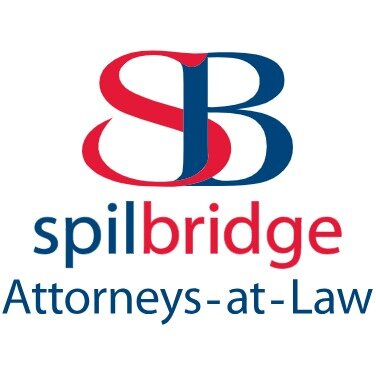Best Commercial Real Estate Lawyers in Riga
Share your needs with us, get contacted by law firms.
Free. Takes 2 min.
Free Guide to Hiring a Real Estate Lawyer
List of the best lawyers in Riga, Latvia
About Commercial Real Estate Law in Riga, Latvia
Commercial real estate in Riga, Latvia, is a dynamic field influenced by both local and European Union regulations. The city's strategic location and growing economy have made it an appealing destination for investors and businesses. Commercial real estate involves various types of properties, including office buildings, retail spaces, warehouses, and industrial parks. Prospective landlords, tenants, developers, and investors should be well-informed about the legal landscape to navigate the complexities inherent in commercial real estate transactions.
Why You May Need a Lawyer
There are several situations where legal assistance in commercial real estate is crucial:
- Property Acquisition and Disposal: Navigating the negotiation, drafting, and execution of sales agreements.
- Leasing Agreements: Drafting, reviewing, or negotiating terms for commercial leases.
- Due Diligence: Conducting thorough due diligence to ensure the property is free of encumbrances or legal issues.
- Dispute Resolution: Handling disputes between landlords and tenants or partners in a real estate venture.
- Development and Zoning Issues: Advising on zoning laws and obtaining necessary permits for property development.
- Joint Ventures or Partnerships: Structuring agreements between multiple parties involved in property investment.
Local Laws Overview
Understanding local legislation is vital for successful commercial real estate transactions. Key aspects include:
- Property Ownership and Transfer: Governed by the Latvian Land Register which ensures transparency and security in property ownership transfers.
- Zoning Regulations: Dictates what types of businesses can operate in specific areas, crucial for development and operational compliance.
- Lease Regulations: Covers terms, tenant rights, and landlord obligations under both short-term and long-term leases.
- Environmental Laws: Includes assessments and compliance regarding potential environmental impacts of development projects.
- Taxation: Real estate transactions are subject to capital gains tax, stamp duty, and property tax, which vary depending on the property's status and use.
Frequently Asked Questions
What are the main types of commercial real estate available in Riga?
In Riga, the major types of commercial real estate include office buildings, retail spaces, industrial properties, and warehouse facilities.
How are property transactions registered in Latvia?
Property transactions are registered with the Latvian Land Register, which records all property ownerships and ensures legal transparency.
What is the typical duration for commercial leases in Riga?
Commercial leases in Riga can vary significantly, but they typically range from 3 to 10 years, with options for renewal negotiated in the lease agreement.
How can zoning affect my commercial real estate project?
Zoning laws determine the permissible uses for a property, affecting what type of business can operate or be developed on that land. Compliance with local zoning laws is essential for project approval.
What due diligence should I perform before purchasing commercial property?
Due diligence should include reviewing current ownership, title deeds, any existing liens, zoning laws, environmental assessments, and structural condition reports.
Are foreign investors allowed to purchase commercial real estate in Latvia?
Yes, Latvia allows foreign individuals and entities to purchase commercial real estate, subject to the same legal processes as Latvian nationals.
What taxes are associated with commercial real estate transactions?
The main taxes include property tax, capital gains tax on profit from sales, and a stamp duty payable upon registration of property transactions.
What happens if there is a property dispute between a landlord and a tenant?
Disputes are typically resolved through negotiation, mediation, or legal proceedings in accordance with the terms outlined in the lease agreement or through court if necessary.
Is it necessary to obtain permits for renovations or construction on commercial properties?
Yes, permits are required for most types of renovations and constructions, including alterations affecting the structure, safety, and use classification of a property.
Can a lease agreement be terminated early, and under what conditions?
Early termination of a lease depends on the terms agreed upon in the contract. Common conditions might include mutual consent, breach of agreement, or significant changes in property use.
Additional Resources
For further assistance and information, you may contact:
- Latvian Investment and Development Agency: Provides support for foreign investors and business development.
- Riga City Council: Offers guidance on local regulations and zoning requirements.
- Latvian Land Register: Key resource for real estate registration and legal property status checks.
- Local Law Firms: Specialized law firms in Riga that focus on commercial real estate.
Next Steps
To proceed with obtaining legal assistance in commercial real estate:
- Identify and reach out to a reputable law firm specializing in commercial real estate in Riga.
- Gather all relevant documents related to your property or intended transaction.
- Schedule a consultation to discuss your specific needs, obtain professional advice, and understand your legal position.
- Ensure you have a clear understanding of the costs involved in hiring legal representation.
- Stay informed about local market trends and legal changes that might impact your real estate activities.
Lawzana helps you find the best lawyers and law firms in Riga through a curated and pre-screened list of qualified legal professionals. Our platform offers rankings and detailed profiles of attorneys and law firms, allowing you to compare based on practice areas, including Commercial Real Estate, experience, and client feedback.
Each profile includes a description of the firm's areas of practice, client reviews, team members and partners, year of establishment, spoken languages, office locations, contact information, social media presence, and any published articles or resources. Most firms on our platform speak English and are experienced in both local and international legal matters.
Get a quote from top-rated law firms in Riga, Latvia — quickly, securely, and without unnecessary hassle.
Disclaimer:
The information provided on this page is for general informational purposes only and does not constitute legal advice. While we strive to ensure the accuracy and relevance of the content, legal information may change over time, and interpretations of the law can vary. You should always consult with a qualified legal professional for advice specific to your situation.
We disclaim all liability for actions taken or not taken based on the content of this page. If you believe any information is incorrect or outdated, please contact us, and we will review and update it where appropriate.













